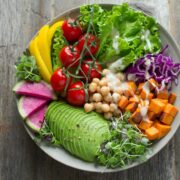Heart failure and atrial fibrillation (AFib) are severe health conditions that can worsen with poor dietary choices. Sugary sodas, energy drinks, and excessive alcohol are some of the worst culprits. Avoiding these beverages supports heart health and overall well-being.
To manage heart failure and AFib, understanding available treatments and lifestyle adjustments is crucial. This extensive approach includes medical interventions, preventive measures, and lifestyle modifications.
For heart failure, medications like ACE inhibitors, beta-blockers, and diuretics reduce the heart’s workload and manage symptoms. For AFib, blood thinners such as warfarin or newer anticoagulants like apixaban prevent strokes, while beta-blockers or rhythm control medications like amiodarone help manage heart rate and rhythm. Always follow your healthcare provider’s guidance when using these medications.
Holistic approaches can complement conventional treatments. Stress management techniques like meditation and mindfulness, along with moderate exercise tailored to individual capabilities, improve cardiovascular health. Acupuncture and certain herbal supplements may offer additional benefits but should be used cautiously with a doctor’s approval to avoid interactions with prescribed medications.
Adopting a heart-healthy diet is vital for managing heart failure and AFib. This includes consuming fruits, vegetables, whole grains, and lean proteins while avoiding high-sodium and high-fat foods. Reducing caffeine and alcohol intake, especially avoiding the worst drinks highlighted in this article, is also recommended. Regular physical activity and maintaining a healthy weight are important lifestyle changes that can impact the heart health significantly .
Navigating the costs associated with treating heart failure and AFib can be challenging. Medicare can cover many aspects of treatment, including medications, hospitalizations, and some lifestyle intervention programs. Additionally, financial assistance programs offered by pharmaceutical companies and nonprofit organizations can help reduce medication costs.
Understanding treatments, lifestyle changes, and financial resources for managing heart failure and AFib helps individuals make informed decisions. Now, let’s focus on the beverages that pose risks to those with these conditions. Avoiding these drinks is an essential step towards better heart health.
Soda:
Loaded with sugar and empty calories, soda is a major culprit in heart failure and AFib. High sugar consumption is linked to an increased risk of heart disease. Cutting soda from your diet significantly improves heart health.
Energy Drinks:
Filled with caffeine and sugar, energy drinks are dangerous for those with heart conditions. High caffeine levels can cause irregular heartbeats and increase AFib risk. Natural energy sources like sleep and a healthy diet are better alternatives.
Alcohol:
While moderate alcohol consumption may have some health benefits, excessive drinking is detrimental to your heart. It can weaken the heart muscle, leading to heart failure, and trigger AFib episodes. Limiting or avoiding alcohol is best for heart health.
Sugary Cocktails:
Cocktails made with sugary mixers are doubly harmful to heart health. They contain alcohol and high levels of added sugars, leading to weight gain, high blood pressure, and other heart failure and AFib risk factors. Opt for lighter, less sugary options.
Coffee:
Too much caffeine from coffee can lead to palpitations and irregular heartbeats, increasing AFib risk. Moderating your coffee intake protects heart health.
Sweetened Iced Tea:
The added sugars in sweetened iced tea contribute to weight gain and high blood pressure, risk factors for heart disease. Opt for unsweetened tea or natural sweeteners like honey or stevia.
Fruit Juice:
High in sugar and calories, fruit juice causes rapid blood sugar spikes, stressing the heart and increasing heart failure risk. Whole fruits, which contain fiber and cause less blood sugar spikes, are a better choice.
Sports Drinks:
Often loaded with sugar, sports drinks lead to weight gain and high blood pressure, both risk factors for heart disease. Stick to water for hydration.
Artificially Sweetened Drinks:
Some studies link artificial sweeteners to increased heart disease and AFib risk. Limit intake and opt for water or unsweetened beverages.
High-Sodium Drinks:
Excessive sodium intake from high-sodium drinks can lead to high blood pressure and heart failure. Be cautious of bottled and canned beverages and opt for low-sodium options or plain water.
Canned Soup:
Surprisingly high in sodium, canned soup can lead to high blood pressure and heart disease. Choose low-sodium options or make homemade soup to control sodium content.
Store-Bought Smoothies:
Often packed with added sugars, store-bought smoothies contribute to weight gain and heart disease risk. Make your own smoothies with fresh fruits and vegetables to control sugar content.
Sweetened Milk Drinks:
High in sugar and calories, sweetened milk drinks contribute to weight gain and high blood pressure, risk factors for heart disease. Stick to plain milk or unsweetened alternatives for a healthier option.
Disclaimer:
This article is for informational purposes only and is not a substitute for professional consultation or advice related to your health or finances. Some of this article may have been generated using artificial intelligence and may contain inaccuracies or unreliable information. Consult professionals for personal advice.



















Comments